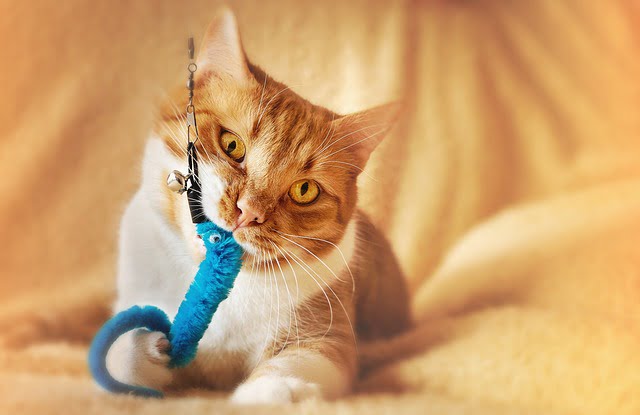
[ad_1]
A common behavior among cats is growling when they have a toy in their mouths. In this article, we will explore the reasons behind this behavior and help you understand what your feline friend might be trying to communicate. Read on to discover the fascinating world of cats and their toy growling habits.
Why do cats growl when they have a toy in their mouths?
Have you ever noticed your cat growling while carrying a toy around in its mouth? This behavior might seem puzzling at first, but there are actually several reasons why cats exhibit this behavior.
One reason cats growl when they have a toy in their mouths is to communicate possession. Cats are territorial animals, and by growling, they are signaling to other animals (or even humans) that the toy belongs to them. This behavior is rooted in their instinct to protect their resources and establish boundaries.
Another reason cats growl while carrying a toy is to express excitement or arousal. Just like humans might vocalize when they are excited or playful, cats use growling as a way to release pent-up energy and show their enthusiasm for their toy.
What are some other possible reasons for this behavior?
In addition to communication and excitement, cats may also growl when carrying a toy as a form of predatory behavior. When cats hunt in the wild, they make vocalizations to signal their prey or fellow hunters. In a domestic setting, a cat growling with a toy in its mouth may be mimicking this behavior or expressing its natural instinct to hunt.
Furthermore, growling while carrying a toy can also be a sign of stress or anxiety in a cat. If your feline friend is feeling overwhelmed or threatened, they may use vocalizations as a way to cope with their emotions or seek comfort and reassurance.
How can you respond to your cat’s toy growling?
When your cat growls while carrying a toy, it is essential to respond appropriately to ensure their well-being and safety. Firstly, avoid trying to take the toy away from your cat while they are growling, as this can escalate the situation and potentially lead to aggression.
Instead, provide your cat with a safe and quiet space to enjoy their toy without feeling threatened or disturbed. If your cat’s growling persists or becomes excessive, consider consulting with a veterinarian or animal behaviorist to address any underlying issues that may be causing the behavior.
Could toy growling be a sign of a more serious problem?
While toy growling is usually a harmless behavior, it is essential to be aware of any changes in your cat’s behavior that may indicate a more significant problem. If your cat’s growling is accompanied by aggression, lethargy, or other concerning symptoms, it is crucial to seek veterinary advice to rule out any underlying medical conditions or behavioral issues.
Remember that each cat is unique, and what is considered normal behavior for one cat may be a sign of a problem for another. By staying attuned to your cat’s body language and vocalizations, you can better understand their needs and provide the necessary care and support.
What Does It Mean When A Cat Brings You A Toy?
Conclusion
In conclusion, cats growl when they have a toy in their mouths for various reasons, including communication, excitement, predatory behavior, and stress. By understanding the motivations behind this behavior and responding appropriately, you can ensure your cat feels safe, secure, and happy during playtime. Remember to observe your cat’s body language and seek professional advice if you have any concerns about their behavior.
FAQs
Q: Is it normal for cats to growl with a toy in their mouths?
A: Yes, growling while carrying a toy is a common behavior among cats and is usually harmless. However, it is essential to monitor your cat’s behavior for any signs of distress or aggression.
Q: Can toy growling indicate a health problem in cats?
A: In some cases, excessive or persistent growling with a toy in their mouth may be a sign of an underlying medical or behavioral issue. If you are concerned about your cat’s behavior, it is best to consult with a veterinarian for proper evaluation and diagnosis.
Q: How should I respond to my cat’s toy growling?
A: When your cat growls with a toy, it is essential to give them space and avoid attempting to take the toy away. Provide a safe and quiet environment for your cat to enjoy their playtime without feeling threatened.
Q: Can toy growling be a form of play for cats?
A: Yes, growling while carrying a toy can be a sign of excitement and playfulness in cats. It is their way of releasing energy and expressing their enjoyment of the toy.
Q: When should I be concerned about my cat’s toy growling behavior?
A: If your cat’s growling is accompanied by aggression, lethargy, or other concerning symptoms, it is essential to seek veterinary advice. These signs may indicate a more serious problem that requires medical attention.
[ad_2]
